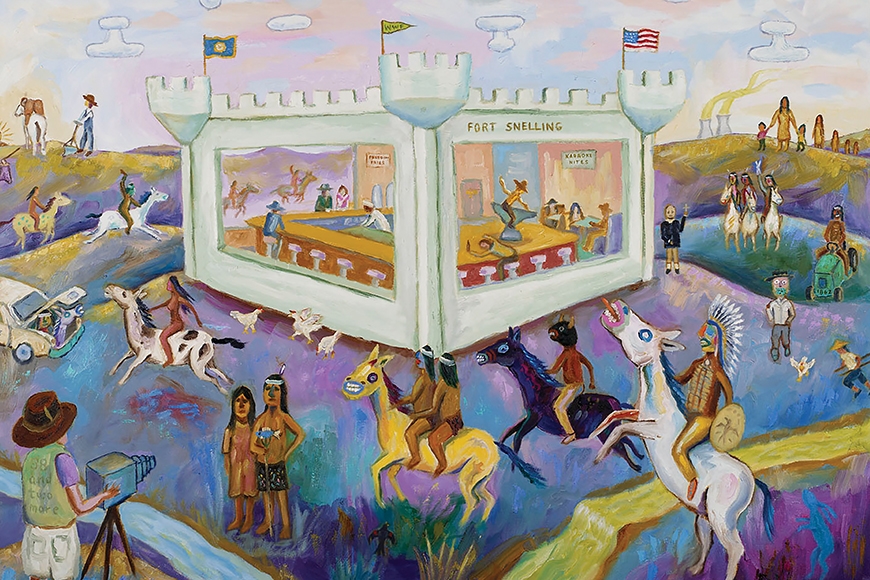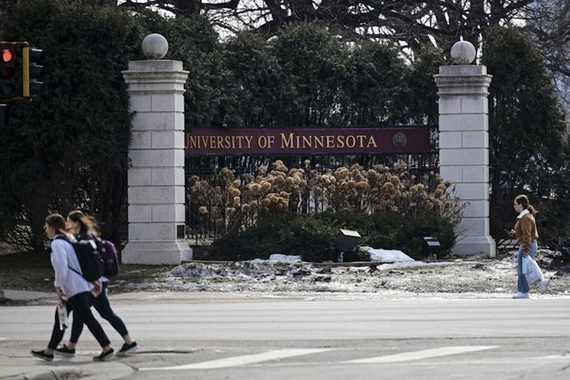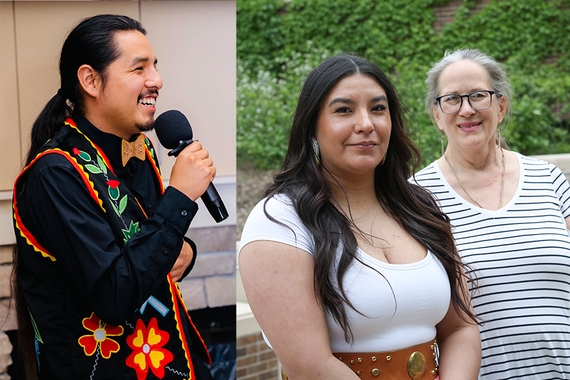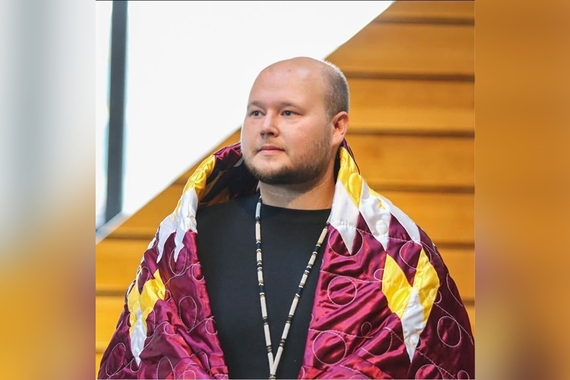Native Artist Series: Healing, Humor, and Art
The silver moon shines through the clear windows of the Weisman Art Museum’s Riverside Gallery, giving it an ethereal glow, while the Mississippi River flows below, calm yet ominous in the distance. Jim Denomie is scheduled to take the stage at 6:30 to talk about his surrealist paintings as part of the Department of American Indian Studies’ Native Artist Talk Series.
Started in September 2017, the Native Artist Talk Series is a monthly presentation given by American Indian artists, painters, musicians, and playwrights. The artists represent their experiences as Native Americans in their work, and the Department of American Indian Studies provides a platform to inform and engage with University students, alumni, and the Twin Cities community.
Community members can participate in Native-run events, creating widespread emotional connections between the artist, attendee, and community. On February 15, the Weisman co-sponsored the event featuring Jim Denomie.
Denomie’s Mission
Native American artist Jim Denomie is an Ojibwe painter. He takes a colorful and comedic approach to US and Native American history. Denomie uses oil, acrylic, and watercolor, but he also dabbles in printmaking, photography, and found object sculpture. In 1995, Denomie received a dual bachelor's degree in American Indian studies and fine arts from the University of Minnesota after a hiatus in his education.
As a young man, peers told him that there was no future in art, and he subsequently dropped out of school. After battling alcoholism for many years, Denomie re-enrolled at the University and became involved in the Native American community in the Twin Cities.
The art classes reinvigorated his love for art, and he dedicated his life and career to honing his skills. His art is social commentary that uses humor and satire as illumination, something that Denomie says “comes with being Indian” and captures feelings that are not easily described.
With over 120 group and individual exhibits in the United States and Europe, Denomie has attracted a considerable audience. For example, his series about Edward Curtis, an early 1900s photographer who focused on the American West and Native Americans, tells the story of how Curtis framed his photographs of American Indians to portray what he believed to be a dying culture. Denomie’s series calls into question the ways men like Curtis have framed their portrayals of natives, often as being an ancient or uncivilized culture. Denomie’s art transcends stereotypes and brings humor and attention to a dark history of erasure and deep rooted misunderstandings of Native people.
Molly Tynjala, an undergraduate English major at the University of Minnesota, was first introduced to Denomie’s work at the Native American exhibition at the Science Museum of Minnesota.
She attended Denomie’s talk at the Weisman, and was drawn to his work for its blatant honesty and depth. “Jim Denomie’s piece Non Negotiable left a profound impression on me. The striking colors and images caught my eye, of course, but the symbolism within the work struck me the most,” she says. “Abraham Lincoln holding a noose, a treaty document ripping between a two-faced Uncle Sam and an American Indian Chief, and a dead man growing a dandelion out of his gaping mouth beautifully generate an emotionally evocative piece.”
A Platform for Change
Denomie’s art serves as discourse on realities that aren’t always pleasant. He delves into US and Native American histories, addressing injustices, satirizing hardships, and creating a space for conversation, healing, and humor. Denomie tackles the selective memory of American history books, and, through his art, endeavors to undo the damage that forgetting the unpleasant histories does to native communities.
The Native Artist Talk Series features artists, who, like Denomie, have something to say about Native American identity. Fawn Grauman-White, the community engagement coordinator for the Department of American Indian Studies, says that “the series is about connection with the community and how [the artists’] work raises awareness to social issues, challenges of artists, the journeys they have been on to be successful artists.”
This story was written by an undergraduate student account executive in CLAgency. Meet the team.



